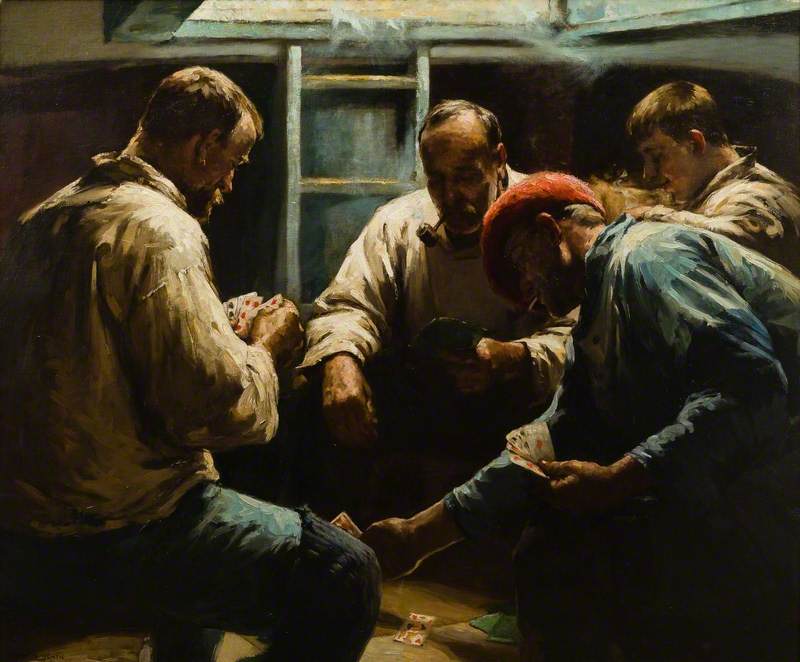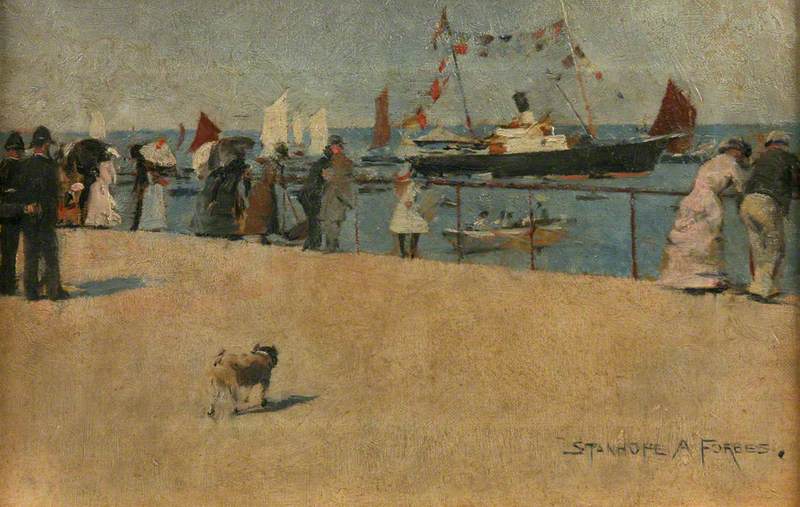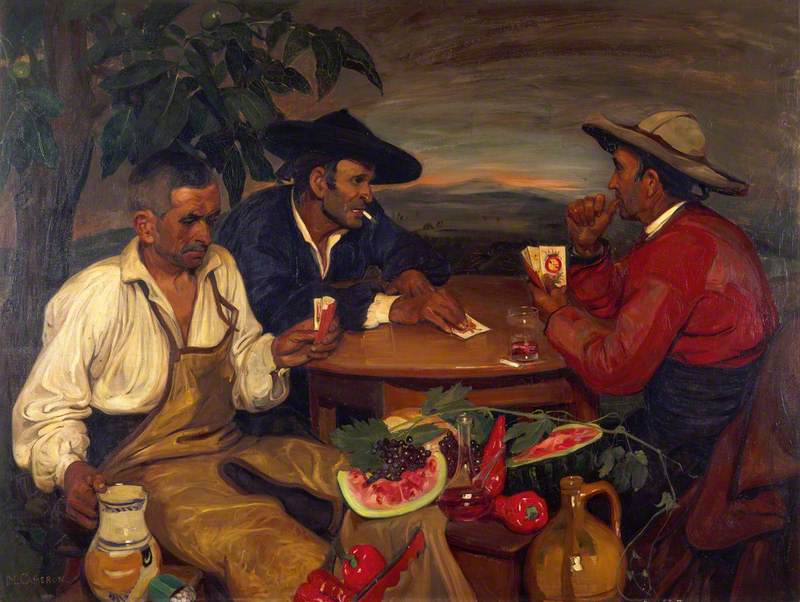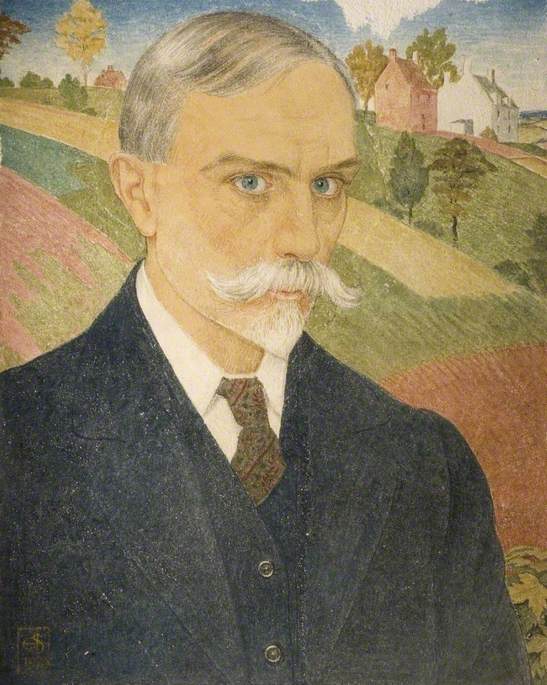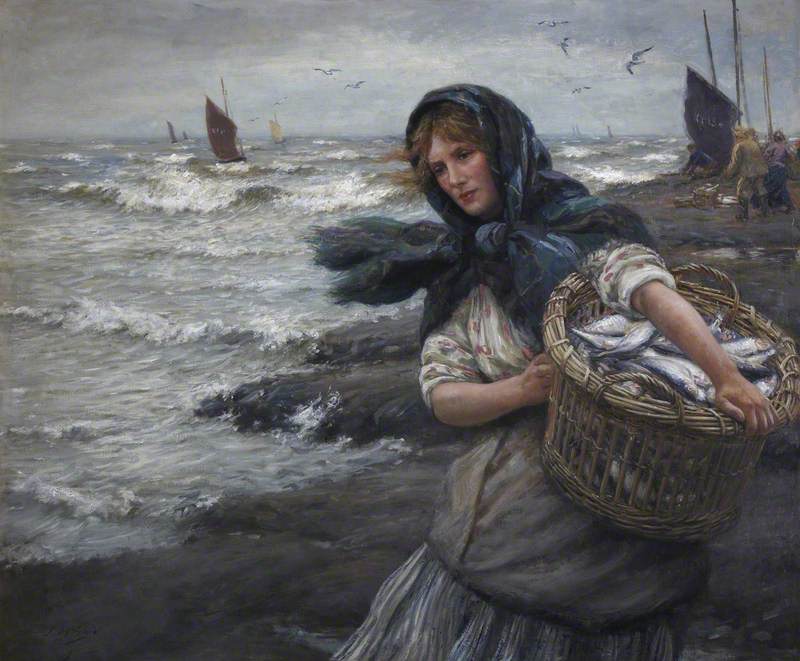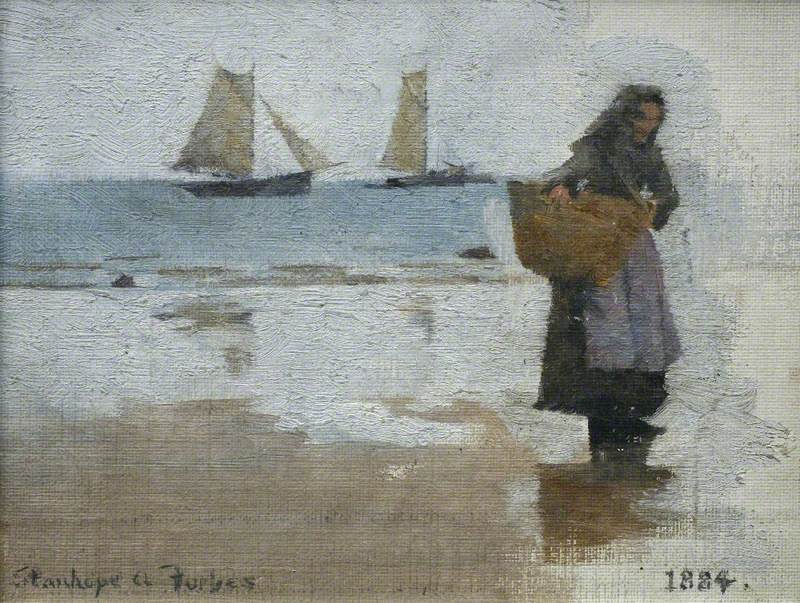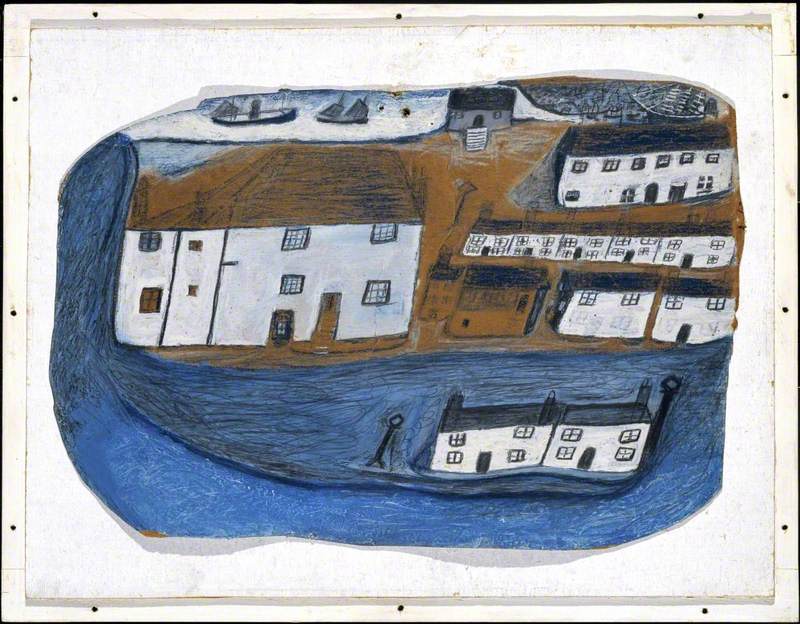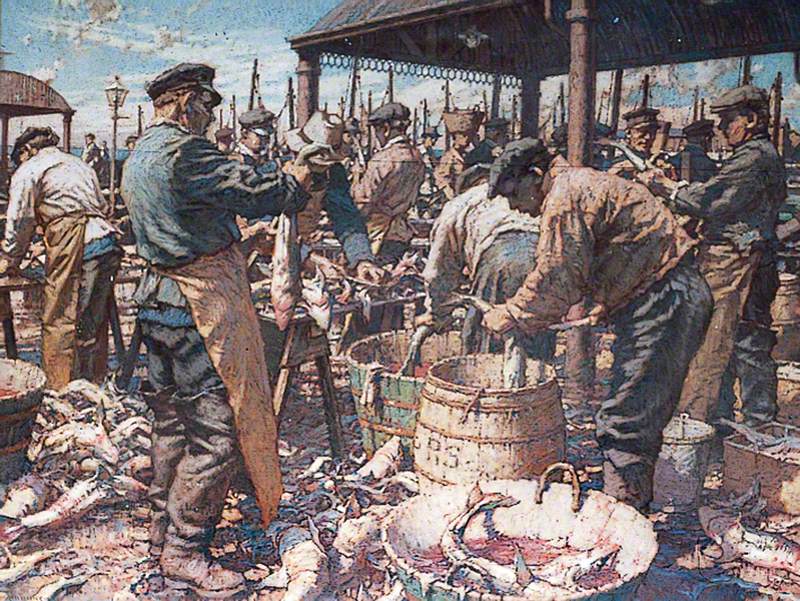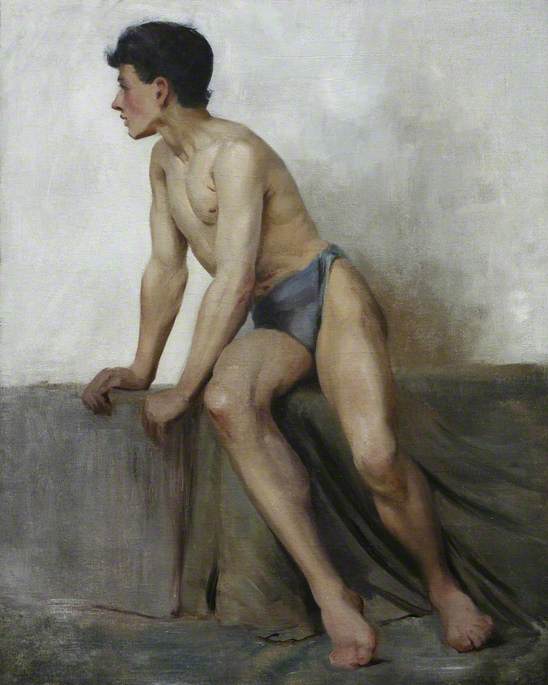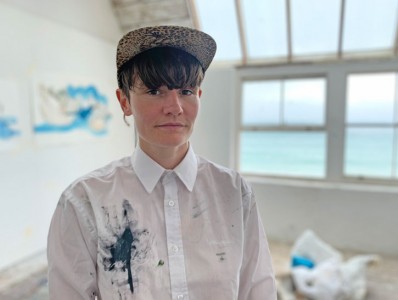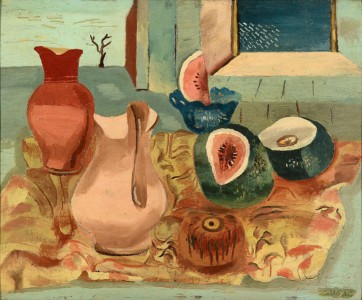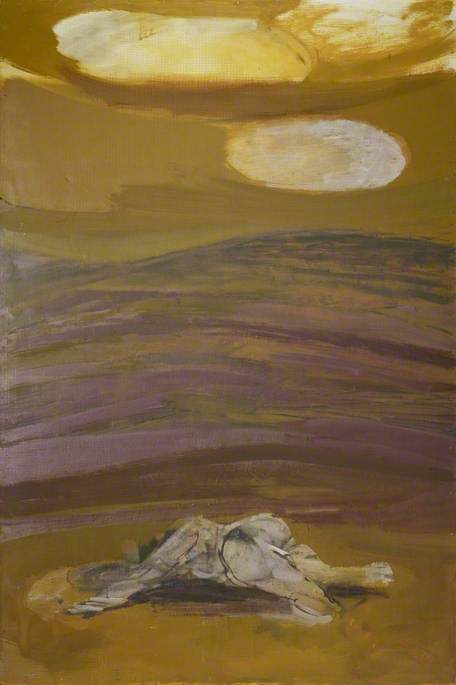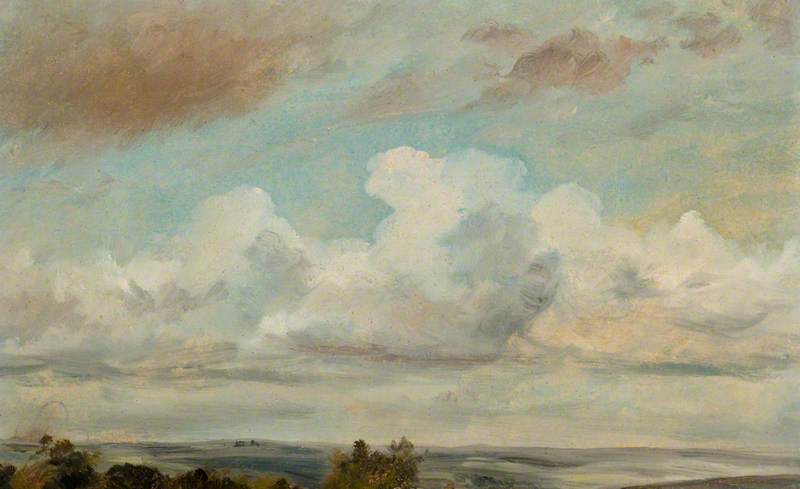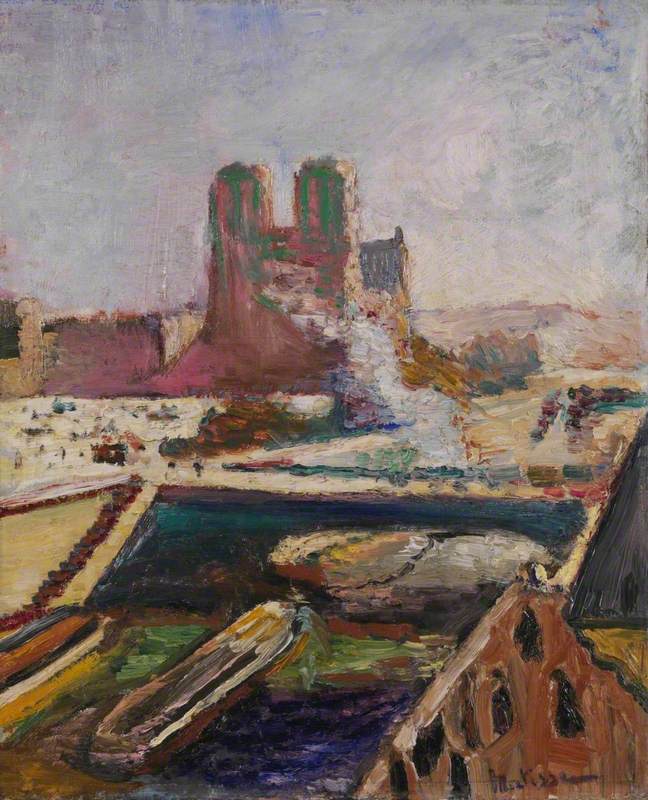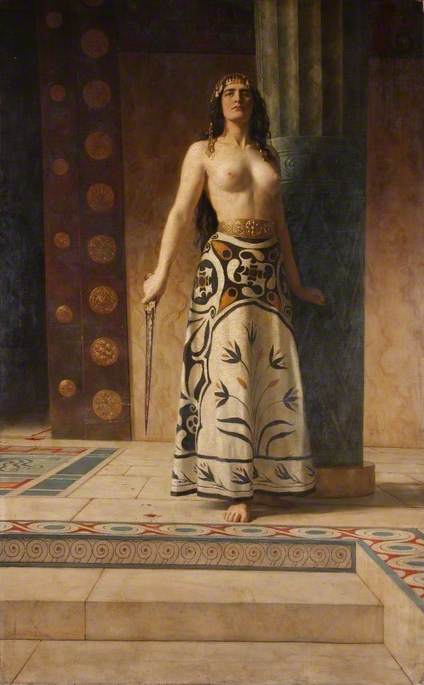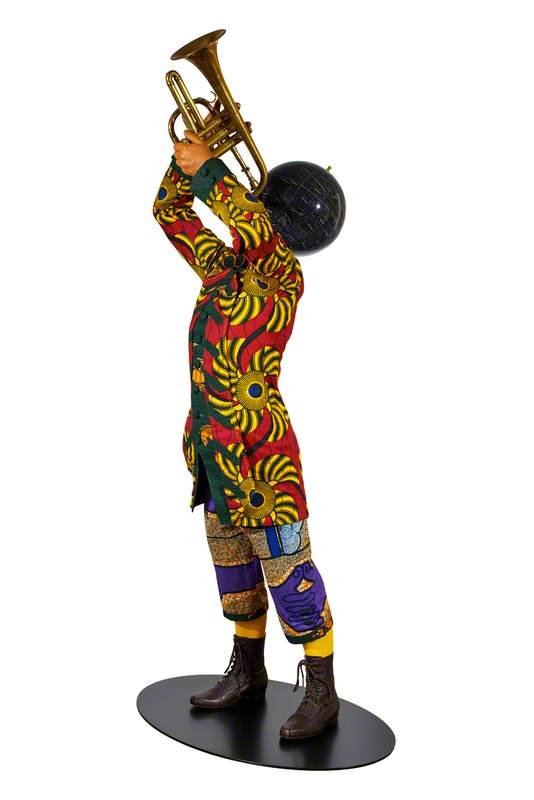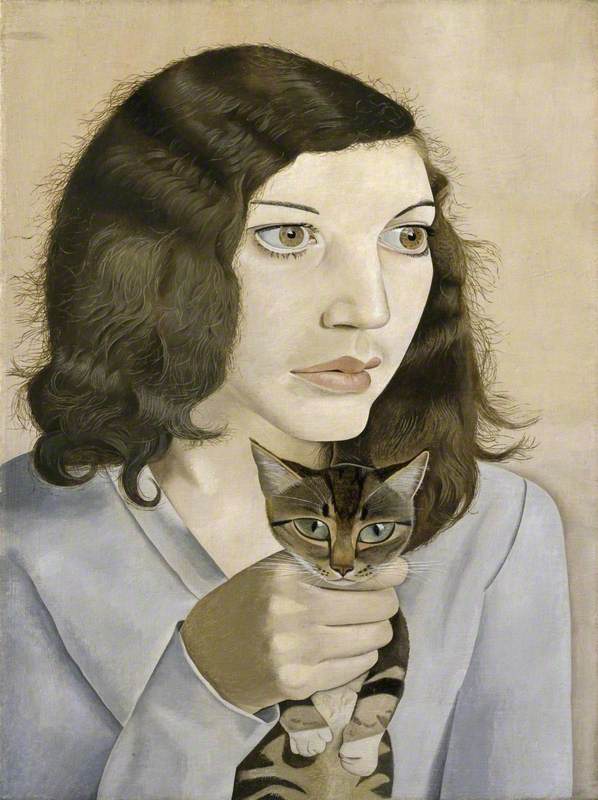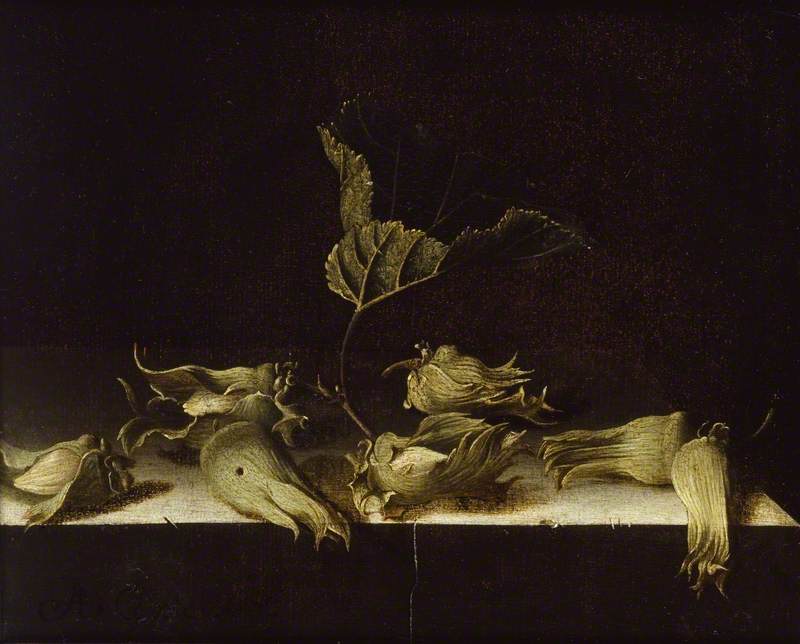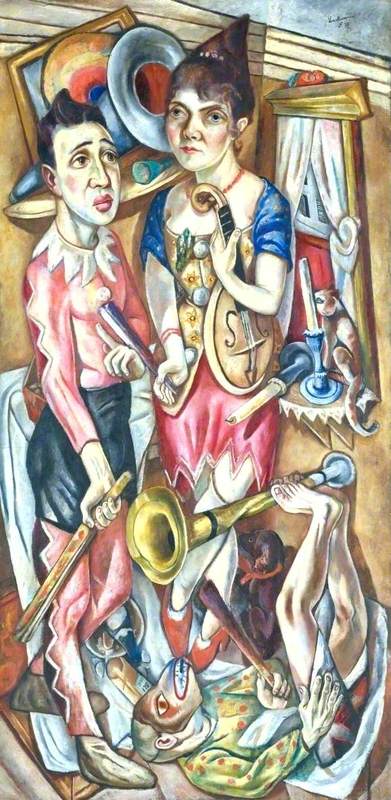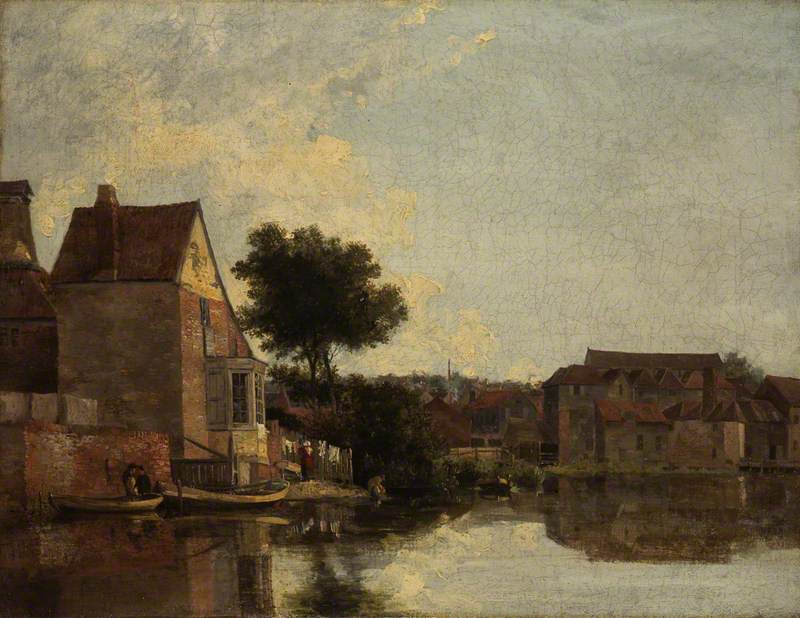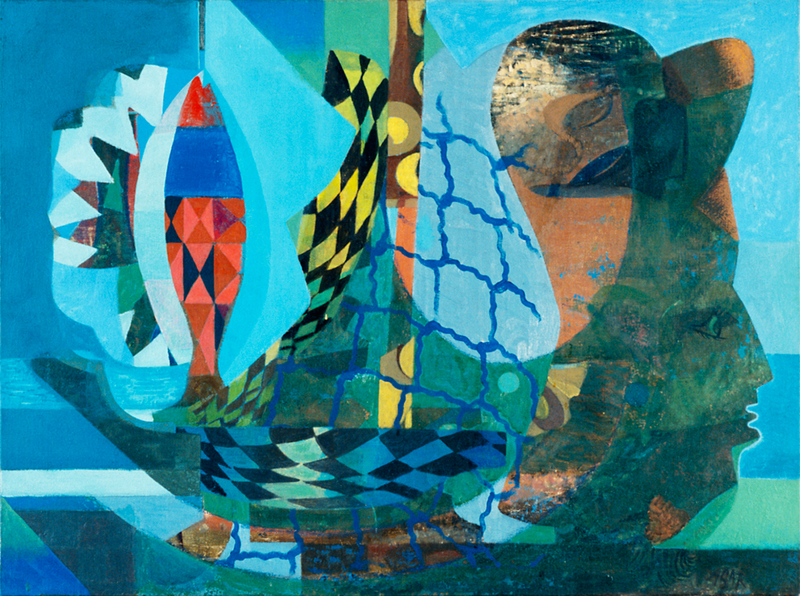Euchre, a five-card trick game traditionally played by four players, is still played in Cornwall and the southwest of England, where local people are immensely proud of their heritage. The game was exported by migrant Cornish workers, and there are Euchre leagues in Canada and the US as well as Australia and New Zealand.
Frank Gascoigne Heath's work was completed in 1909 and joined Penlee House's collection in 2017.
Painted with great fluency and an impressive use of chiaroscuro, the work is significant for both its style and subject matter. It bears the hallmarks of the first-generation Newlyn School ethos of painting plein air social realism, which focused on ordinary people doing everyday activities, and it is a remarkable and arresting example of the Newlyn School painters' concern with representing scenes from modern life.
Four men are seated in the shadowy hold of a fishing boat. Only three of them are playing – their game is a variant for three players known as cut-throat euchre. The powerful presence of the card players is emphasised by the size of the picture, which measures one and a half metres across. For all its grand scale, however, the scene is intimate. The men, dressed in ganseys (a type of fisherman's smock), sit in the shadows of the hold with the sunlight streaming down through the hatch.
The light is diffused by the haze from the men's pipe and cigarette smoke, and all the players appear absorbed in their game. The man seated on the lower right wears a pilot's red cap. We are drawn into their inner circle and the drama of the game by the smallness of the space and the giant scale of the figures, two of whom are cut away in the foreground by the picture frame.
The painting was acquired from a private collection in 2017 and has fast become a favourite with visitors of all ages. The image of the Cornish card players has a strong cultural resonance. Cornwall's right to national minority status was recognised by the government in 2014; Penlee House recognises and celebrates Cornish culture to give young people confidence and encouragement to identify with their cultural identity.
Katie Herbert, Curator/Deputy Director, Penlee House Gallery & Museum
